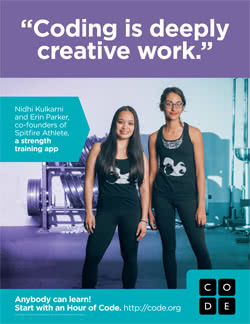Digital Citizenship: the ability to think critically, behave safely, and participate responsibly in the digital world.
| "My students were amazed at how easily people gave out their passwords." Teacher Feedback |
On November 15th, the high school building held our first Digital Citizenship lesson for all students in grades 9-12. Moving forward, approximately every other week advisory teachers will lead a discussion about a digital citizenship topic. These topics include: Online Safety and Privacy, Recognizing and Preventing Cyberbullying, Legal Use of Web Content, Digital Footprint and Reputation, and Evaluating Online Information.
| “This was a good lesson, and I think the majority of the students gained awareness of online safety.” - Teacher Feedback |
We chose to spend time on digital citizenship because data collection from the past two years has shown there is a need. Annually since 2015, students, parents, and teachers representing our HS building have completed a survey, designed by Clarity BrightBytes, about technology access, use, and knowledge. Our High School Technology Team met several times at the beginning of the school year to analyze the data and discuss areas for improvement. Digital citizenship was identified as one of these areas, and the team determined to focus our attention there because research shows digital citizenship is important for our health and success and it closely aligns to our District Mission Statement. The High School Technology Team presented the data and team reflections to all high school teachers, and teacher insights have since guided the development of lesson topics and design.
After the first lesson, each student was emailed the Protect Your Identity presentation link* along with a link to complete a student survey. Both links require the student to be logged into his/her Ballard Google account in order to be viewed.
Below, you will find a family tip sheet in regards to the Protect Your Identity discussion.
After the first lesson, each student was emailed the Protect Your Identity presentation link* along with a link to complete a student survey. Both links require the student to be logged into his/her Ballard Google account in order to be viewed.
Below, you will find a family tip sheet in regards to the Protect Your Identity discussion.
Family Tip: Scams and Identity Theft
*Note: Due to the fact that these lessons were specifically designed for our Ballard students, in order for a parent/guardian to view these lessons, please have your Ballard student log into his/her Ballard account on a Chrome browsers before selecting the link or entering the URL in a Chrome browser Omnibox (address bar).




